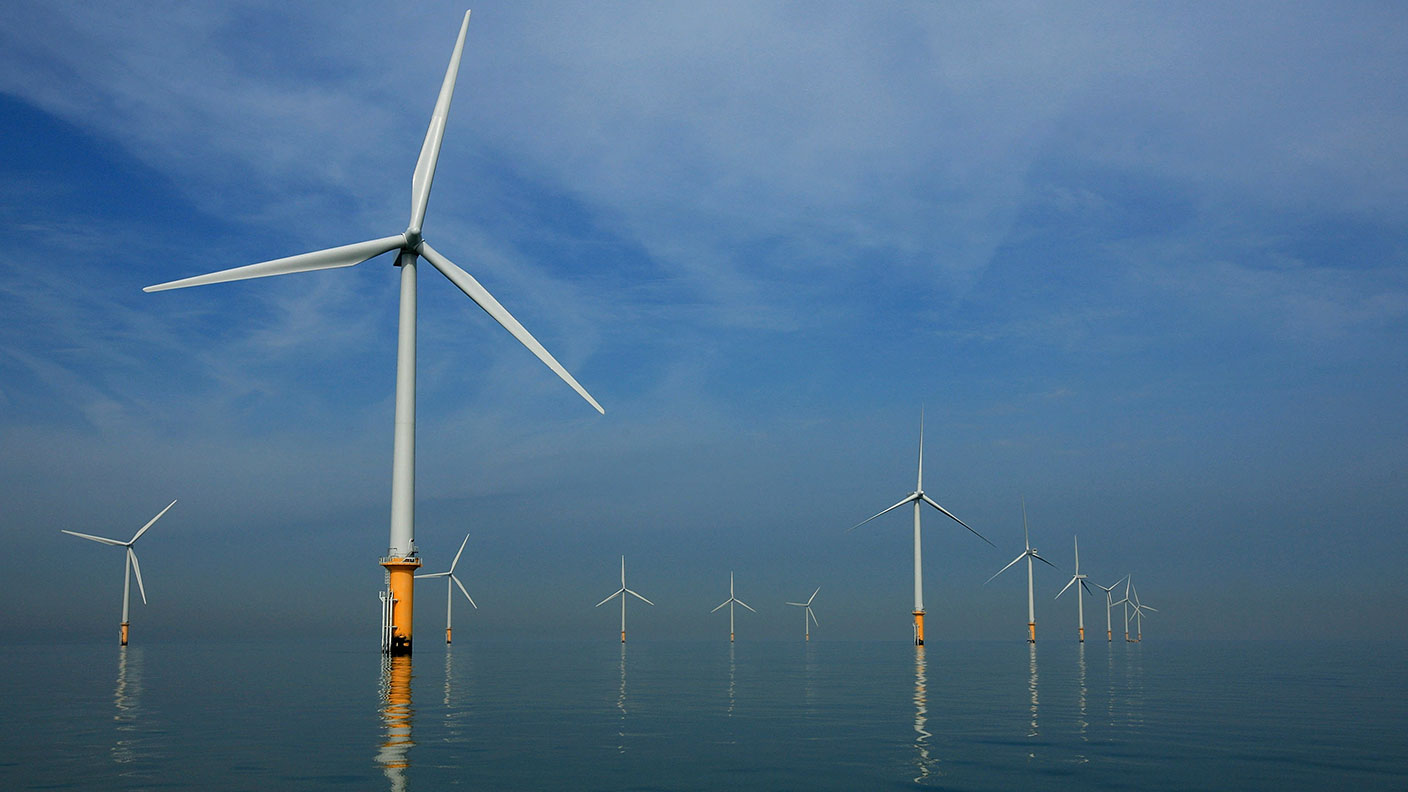Why we will be reliant on fossil fuels for a long time to come
The energy crisis has shown us just how reliant we still are on fossil fuels. And we will continue to rely on them for a long time yet, says Merryn Somerset Webb.


Get the latest financial news, insights and expert analysis from our award-winning MoneyWeek team, to help you understand what really matters when it comes to your finances.
You are now subscribed
Your newsletter sign-up was successful
Want to add more newsletters?

Twice daily
MoneyWeek
Get the latest financial news, insights and expert analysis from our award-winning MoneyWeek team, to help you understand what really matters when it comes to your finances.

Four times a week
Look After My Bills
Sign up to our free money-saving newsletter, filled with the latest news and expert advice to help you find the best tips and deals for managing your bills. Start saving today!
Last week, the online UK supermarket Ocado told its customers that it had “limited ability” to deliver ice cream to them, because the price of natural gas had soared.
The rising gas price caused two of the UK’s big industrial fertiliser plants to shut down, as natural gas is the feedstock for ammonia, which is used to make fertiliser. Since carbon dioxide is captured from ammonia production, this has hit the supply of CO2 in the UK. And that has led to a cut in the supply of dry ice that supermarkets use to keep food cool in their delivery vans: so no ice cream.
We can live without ice cream, but what of the other effects? Abattoirs are short of the gas they need to stun animals, hospitals might not have the carbon dioxide they need for minor surgeries, and the nuclear industry is low on the gas it needs for cooling. These things really matter. This mini crisis has been fairly quickly resolved, for now at least: the taxpayer is stepping in to subsidise a fertiliser factory for three weeks.
MoneyWeek
Subscribe to MoneyWeek today and get your first six magazine issues absolutely FREE

Sign up to Money Morning
Don't miss the latest investment and personal finances news, market analysis, plus money-saving tips with our free twice-daily newsletter
Don't miss the latest investment and personal finances news, market analysis, plus money-saving tips with our free twice-daily newsletter
We’re still heavily reliant on fossil fuels – and will be for years
However, that doesn’t mean you shouldn’t worry; you should. This incident serves as a timely reminder of just how reliant we are on fossil fuels. Despite our optimistic enthusiasm for wind and solar power, one way or another oil and gas use is shot through every part of our economic and social lives. That will be the case for many decades to come.
In his recently updated book There is No Planet B, Mike Berners-Lee lays out the challenge (and, perhaps inadvertently, the lack of a medium-term solution). When we talk about shifting from fossil fuels to clean energy of one kind or another, we aren’t discussing taking the amount of energy we use now and producing that static amount in a different way. Instead our target is always on the move: the more energy we can get our hands on, the more we use – even if our use of it becomes more efficient.
We use three times as much energy as we did 50 years ago and at current growth rates that will soon double again. Think of this in terms of solar panels. Right now, says Berners-Lee, if we could figure out storage and transmission (which so far we haven’t), we could meet all our global energy needs by covering 0.1% of the world’s land in solar panels. Keep expanding our energy use at 2.4% a year (the ten-year average is 1.5% but in 2018 it was 2.9%) and in 300 years we will need every inch of land mass there is in every country in the world.
In one sense this is a ridiculous way to look at it – we live in a stunning age of innovation and the panels we use today will surely look amusingly archaic in a decade or two, and abattoirs and others can find another solution instead of gas. But you get the point: energy usage is going to keep rising, led by China, the US and India, while energy transitions tend to both take a very long time and never actually end. We just pile new sources on top of old. The world still uses much the same amount of traditional biomass (wood etc) as it did 100 years ago. Even after many years of efforts, coal, oil and gas still make up 80% of our global energy mix, pretty much exactly the same number as a decade ago. We are running to stand still.
This will change, but not as fast as you might like to think. In 2019, 33% of our new power generation needs were met by renewable energy. That’s a start – but 40% were met by natural gas.
We should stop demonising fossil fuels
There’s urgency here, of course – which might speed things up. But there is something else that might slow us down. It didn’t take much to move people to fossil fuels – they are relatively easy to extract, relatively easy to transport, hugely energy dense and efficient and, of course, cheap. Until their externalities were understood, who could possibly have objected? Our current transition is different: people and companies will switch not because the new sources are easier to access, cheaper or more energy dense, but because regulation mandates that they must.
Either way, the truth is that, whether we like it or not, our energy transition involves long term reliance on fossil fuels. That means that we should stop demonising them – evangelising about ESG, following the trend to divest from shares in oil companies and kiboshing new projects with regulation, high financing costs (many banks are pulling back from the sector) and the like. Instead, we should focus on making their extraction cleaner and more efficient while we wait for the engineering challenges around a renewables-led future to be solved.
If we don’t do this – if we allow ourselves to be beguiled by the idea that solar is so advanced that we no longer need filthy fuels to have ice cream, we will find the future held back by needlessly expensive energy – and almost certainly ice-cream free.
Some reckon that the global population will gladly slash their energy use and pay a “greenium” for the energy they do use. I’d say anyone who believes that has never been on the customer services desk at Ocado, or asked someone in India whether they would like the same average living standard as the average European, or, for that matter, received their latest gas bill.
• This article was first published in the Financial Times
Get the latest financial news, insights and expert analysis from our award-winning MoneyWeek team, to help you understand what really matters when it comes to your finances.

-
 New PM Sanae Takaichi has a mandate and a plan to boost Japan's economy
New PM Sanae Takaichi has a mandate and a plan to boost Japan's economyOpinion Markets applauded new prime minister Sanae Takaichi’s victory – and Japan's economy and stockmarket have further to climb, says Merryn Somerset Webb
-
 Plan 2 student loans: a tax on aspiration?
Plan 2 student loans: a tax on aspiration?The Plan 2 student loan system is not only unfair, but introduces perverse incentives that act as a brake on growth and productivity. Change is overdue, says Simon Wilson
-
 EPC rating standards for private landlords set for major overhaul amid ‘biggest ever’ energy efficiency push
EPC rating standards for private landlords set for major overhaul amid ‘biggest ever’ energy efficiency pushNews The government wants landlords to achieve an EPC rating of at least C in private rented homes. The policy revives plans previously put forward by the Conservatives.
-
 Halifax: House price slump continues as prices slide for the sixth consecutive month
Halifax: House price slump continues as prices slide for the sixth consecutive monthUK house prices fell again in September as buyers returned, but the slowdown was not as fast as anticipated, latest Halifax data shows. Where are house prices falling the most?
-
 Rents hit a record high - but is the opportunity for buy-to-let investors still strong?
Rents hit a record high - but is the opportunity for buy-to-let investors still strong?UK rent prices have hit a record high with the average hitting over £1,200 a month says Rightmove. Are there still opportunities in buy-to-let?
-
 Pension savers turn to gold investments
Pension savers turn to gold investmentsInvestors are racing to buy gold to protect their pensions from a stock market correction and high inflation, experts say
-
 Where to find the best returns from student accommodation
Where to find the best returns from student accommodationStudent accommodation can be a lucrative investment if you know where to look.
-
 The world’s best bargain stocks
The world’s best bargain stocksSearching for bargain stocks with Alec Cutler of the Orbis Global Balanced Fund, who tells Andrew Van Sickle which sectors are being overlooked.
-
 Revealed: the cheapest cities to own a home in Britain
Revealed: the cheapest cities to own a home in BritainNew research reveals the cheapest cities to own a home, taking account of mortgage payments, utility bills and council tax
-
 UK recession: How to protect your portfolio
UK recession: How to protect your portfolioAs the UK recession is confirmed, we look at ways to protect your wealth.